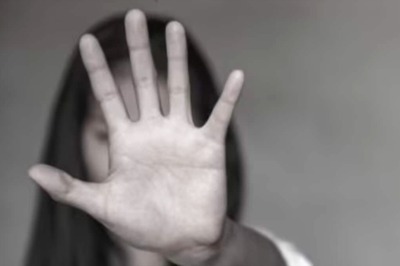
views
Tunis: Thousands of anti-Islamist demonstrators clogged the main avenue of Tunis on Saturday, ending weeks of calm in the North African country's capital and leading authorities to threaten a crackdown.
Tunisia has been in flux since a popular uprising in January forced President Zine al-Abidine Ben Ali to flee, sending shock waves through the Arab world and opening the door to Islamist influence suppressed under the former government.
As many as 15,000 people demonstrated against Tunisia's Islamist movement, calling for religious tolerance a day after the government said a priest's throat had been slit by what it described as a "terrorist" group, Reuters reporters said.
"We need to live together and be tolerant of each other's views," said Ridha Ghozzi, 34, who was among the protesters carrying signs and chanting slogans including "Terrorism is not Tunisian" and "Religion is Personal".
Saturday's demonstrations were a gauge of the popular distrust of the Islamist Ennahda party, banned for two decades under Ben Ali's rule, but which has reorganised since in one of the Arab world's most liberal countries.
Ennahda issued a statement on Saturday condemning the murder of the Polish priest and violence used in Islamist protests against Tunisian brothels in the past weeks.
There was little evidence of security forces along the traffic-choked avenue, though a barbed-wire perimeter remained around the Interior Ministry building with a detachment of soldiers, some on trucks with mounted machine guns.
Another 3,000 protesters gathered around the French embassy building nearby, calling for the removal of the new French ambassador - a target of local media coverage after being curt with reporters from the state broadcaster.
Several hundred other protesters were calling for the replacement of Tunisia's transitional government, charged with preparing elections to replace Ben Ali. Another march in protest of the interim government is planned for Sunday.
The Interior Ministry issued a statement late on Saturday warning that demonstrations remained outlawed under emergency laws in place since the revolution, and that people joining any future demonstrations could be prosecuted.
Tunisia's capital has been free of mass protests for more than two weeks of relative calm.
Ben Ali, who took power in 1987, was seen by many as an oppressive ruler who raided public funds. Elections to replace him are expected by July or August.



















Comments
0 comment